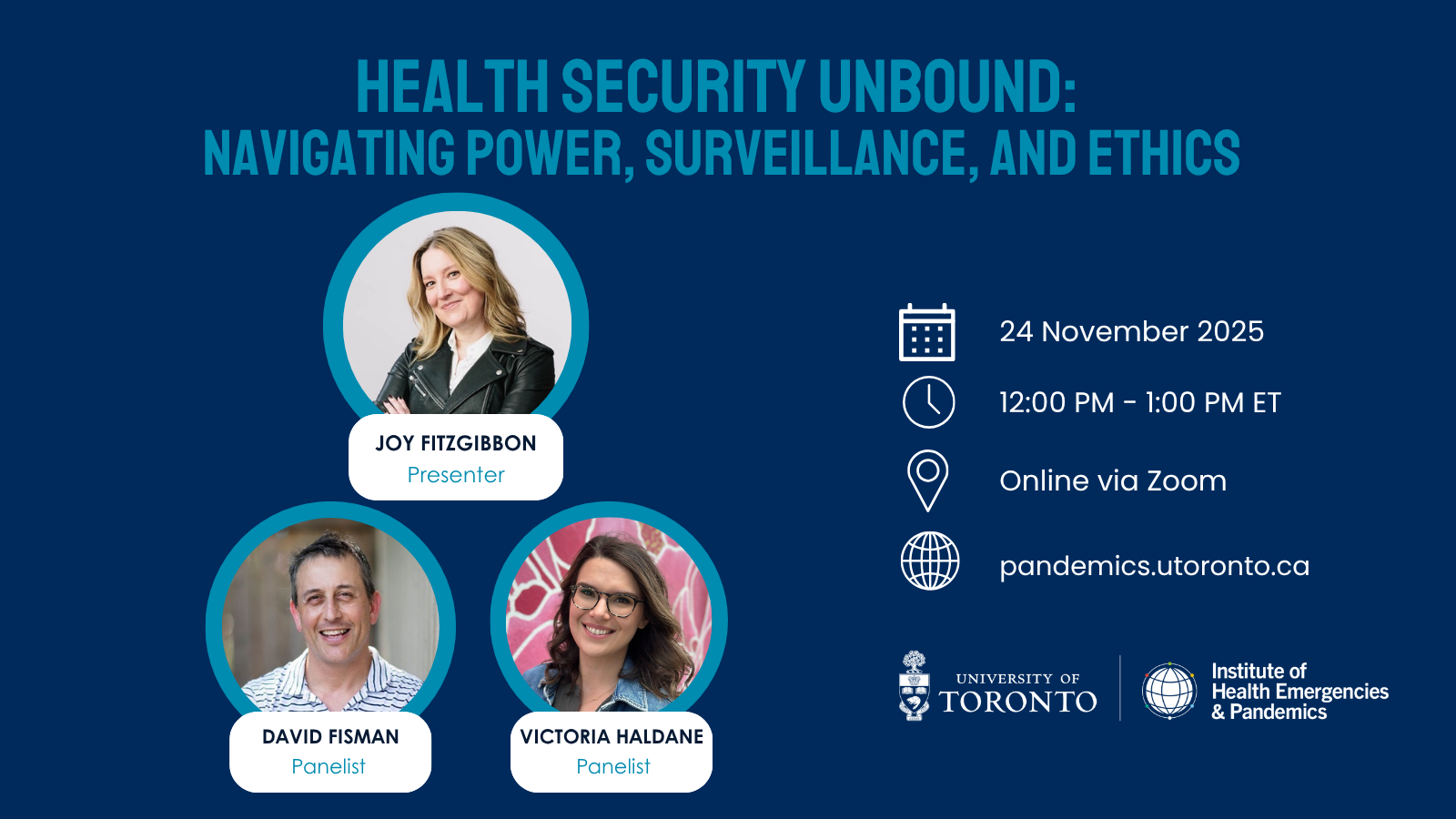
Health Security Unbound: Navigating Power, Surveillance, and Ethics
Event Description
Join us for a compelling and timely webinar led by Joy Fitzgibbon, exploring the evolving landscape of health security in pandemic prevention and response. As global threats increasingly blur the lines between public health and national security, this session will delve into the security requirements that shape pandemic preparedness—and the tensions that arise when human rights intersect with military and intelligence interests.
Through a critical lens, Fitzgibbon will unpack:
- The securitization of health in global pandemic strategies
- Competing frameworks for managing bio-threats
- Ethical dilemmas in surveillance, containment, and emergency powers
- The role of intelligence agencies in pandemic forecasting and response
- How to balance civil liberties with collective safety
Whether you're a policymaker, public health professional, researcher, or concerned citizen, this webinar offers a thought-provoking look at the future of health security—and the choices we face in safeguarding both lives and freedoms.
Speaker Biographies
Main Presenter
Joy Fitzgibbon
Associate Professor, Trinity College

Joy Fitzgibbon is a political scientist whose research explores solutions to governance dilemmas in pandemic control and international security. As a scholar of international relations, she assesses the efficacy of policies shaped by global health networks, international institutions and national public health and security agencies. Her previous research explored the Harvard NGO Partners in Health’s successful policy advocacy at the World Health Organization around multi-drug resistant tuberculosis. She also contributed to a collaborative research project on knowledge networks based out of universities. Her current research examines the contestation between human rights and security /intelligence interests in defining pandemic prevention and response. She has lectured as faculty in the International Pediatric Emergency Medicine Elective at U of T, in the Canadian Disaster and Humanitarian Response Training Program and was a member of the Expert Working Group, Re-imagining Canadian National Security Strategy for the 21st Century—Working Group 7 After COVID: Global Pandemics and Biosecurity Strategy with the Centre for International Governance Innovation at the University of Waterloo. In addition to her faculty position at Trinity College, she is also a Fellow there and a Senior Fellow at the Bill Graham Centre for Contemporary International History.
Featured Panelists
David Fisman
Professor, Dalla Lana School of Public Health

David Fisman is a physician and epidemiologist who studies the epidemiology of infectious diseases, particularly pneumonia. His interests include laboratory datasets as epidemiological resources, mathematical modeling and simulation, infectious disease and environment/climate change, and decision/cost effectiveness analysis. Professor Fisman’s work on COVID-19 has been focused on understanding sources of variability in severity and outcomes, and in mathematical modeling to identify control strategies and optimal uses of drugs and vaccines. He has created seminal models of COVID-19 spread in Ontario that have informed policy decisions.
Victoria Haldane
Assistant Professor, Institute for Health Policy, Management & Evaluation

Victoria Haldane is a global health systems, services, and policy researcher with an interest in participatory implementation science, health systems resilience, health security, and strategic foresight for public health. She has worked with leading organizations including WHO, World Bank, the Public Health Agency of Canada, and the Independent Panel for Pandemic Preparedness and Response. She is currently a member of the Scientific Coordinating Group for the NUS-Lancet Pandemic Readiness, Implementation, Monitoring, and Evaluation Commission (NUS-Lancet PRIME Commission) leading work to develop grassroots indicators of pandemic preparedness. She also is a member of the Founding Steering Committee of the Pandemic Evidence Collaboration, which aims to identify, develop, and implement strategies to generate high-quality and actionable evidence on non-pharmacological interventions during pandemics.
